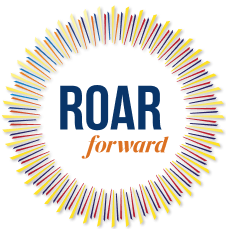It has always been a fantasy of mine to go to veterinary school. For years, I used to fantasize about going to U Penn, the closest school to NYC, where I live with my husband. In 2017, LIU applied for approval to be the first veterinary school in the metropolitan area. Needless to say, I followed their progress during the process. With support from the governor and monetary backing from the state, it only took a quick 2 years for LIU to be granted accreditation from the AVMA COE and become the 31st accredited veterinary school in the States. A few weeks later, I applied and was accepted into their inaugural class, to begin Aug 2020. The fantasy then became a realistic proposition, and I had a tough decision to make. I weighed the things to be gained and lost and looked at the spectrum of my working life in terms of the productive years ahead. I looked back at what I was able to accomplish in 25 years in medicine and did the math. I would enter at 55 and graduate at 59, which would give me 20 years to contribute as a veterinarian. And there you have it! (That’s not to say that I don’t miss my practice, my patients, my co-workers, and doing skin cancer surgery every day.)
You have had a very successful career as a highly recognized dermatologist and surgeon, yet in your mid 50’s, you decided to change course and entered a program to study veterinary medicine. How did you get to this decision? Did you have any concerns about returning to school at midlife?
Regarding returning to school in midlife, I was not afraid of the workload and did not doubt my ability to do it. Despite the volume and the complexity of the material, and the lapse since medical school, I remain determined. Honestly, my initial concerns lay with being able to relate to a much younger generation, but that has turned out to be a pleasant surprise- the students are great. The next big issue that I did not account for, is the loss of autonomy and authority that comes with going back thirty years and becoming a student again. This has been very difficult for me.
Once you complete the program in four years, what do you plan to do as a veterinarian? Will you continue to work as a dermatologist or is it a complete switch of a career?
After graduation in 2024, I plan to continue to focus my efforts on veterinary medicine and would like to make a sustainable improvement in animal welfare. Sadly, animal suffering and neglect is species-wide and worldwide. I am currently thinking that my focus will be dogs. While I have not yet figured out how to make a change on a large scale, I think that an effective solution likely lies within public education. At the very least, I plan to volunteer my veterinary services in order to help with population control with spay and neuter surgery at missions and shelters.
For someone who wants to go back to school in their 50’s l to pivot into a new career, what advice would you give them? What has been your experience?
While I cannot take credit for any of these often-used sayings, they are all so true!
- Go for it!.
- Life is short.
- Follow your dreams.
- Make a difference.

